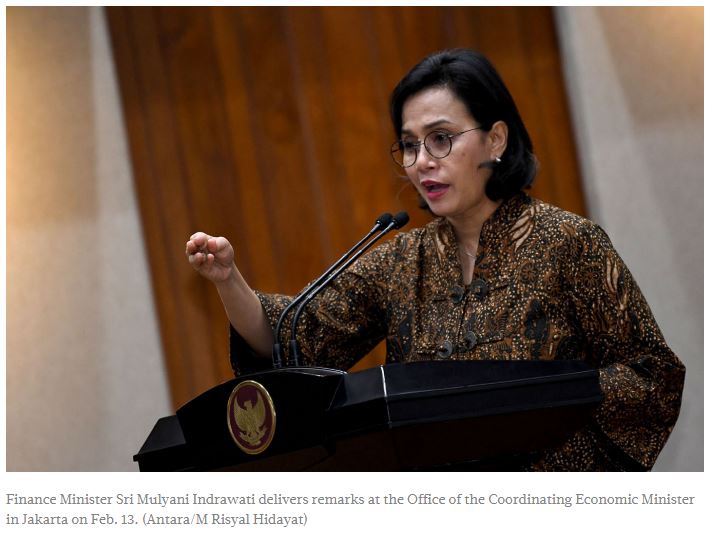Indonesia’s GDP may contract more than 2.1% in Q3 amid Jakarta restrictions: Sri Mulyani
Indonesia’s gross domestic product (GDP) is expected to shrink even further than projected in the third quarter as capital city Jakarta reimposes large-scale social restrictions (PSBB), Finance Minister Sri Mulyani Indrawati said Tuesday.
The government previously expected the economy to post a flat growth at best or a contraction of 2.1 percent at worst in July-September, but the partial lockdown reimplemented by Jakarta is likely to drag down GDP to the lower end of the prediction, she told reporters in a virtual briefing.
“The economic impact will not be as bad” as the first PSBB because Jakarta still allowed offices to remain open with 25 percent capacity, she went on to say.
“This will be very different compared to March and April, when people’s activity stopped.”
The government will monitor social mobility data, among other things, in the next two weeks to assess the country’s GDP performance in the third quarter, she said, warning that economic activity might contract more than the current estimate.
Jakarta Governor Anies Baswedan is requiring non-essential industries to have their employees work from home, residents to limit the use of public transportation and restaurants to prohibit dine-ins starting Monday following a spike in the coronavirus infection rate in the capital in recent days.
Jakarta has recorded a daily average of around 1,000 new cases this month and registered more than 55,000 infections and 1,440 deaths from COVID-19 since the pandemic began in March, official data show. The city implemented a stricter PSBB in April and relaxed it in the so-called transitional PSBB in June before cases started to spike even higher than before.
The capital city contributed the most to the national economy compared to other regions in the country as Jakarta’s regional domestic product accounted for 17.17 percent of the country’s GDP in the second quarter, Jakarta Statistics Indonesia (BPS) data show. It was followed by East Java (14.6 percent) and West Java (13.45 percent), both also virus epicenters.
Indonesia’s economy shrank by 5.32 percent in the second quarter and is widely expected to shrink further in the third quarter, which would mark the first recession since the 1998 Asian financial crisis. “The economy may return to a growth of 0.4 percent to 3.1 percent in the fourth quarter but it will heavily depend on the management of the coronavirus pandemic,” Sri Mulyani said, expecting a 1.1 percent contraction for the full year at worst, or 0.2 percent growth at best.
Source: https://www.thejakartapost.com/news/2020/09/16/indonesias-gdp-may-contract-more-than-2-1-in-q3-amid-jakarta-restrictions-sri-mulyani.html


 English
English




